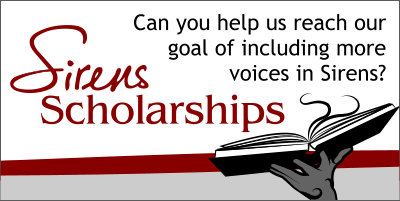I’ve been in love with speculative stories of all kinds, including horror, fantasy, urban fantasy, and paranormal romance, since literally forever. As a kid, I devoured all the Goosebumps books and Are You Afraid of the Dark? was my favorite show. As a teen, I read all the Fear Street books, as well as Peter Straub’s Ghost Story, in one year because I needed more speculative stories in my life. And while I devoured all the books I could get my hands on and adored them, I was always left with a not quite fulfilled feeling. Yes, there was a wealth of fantasy and horror and urban fantasy of all types out there. No, there didn’t seem to be those types of stories available featuring me or somebody who claimed the same identities I did.
In college, a friend gifted me a copy of Minion by the brilliant L.A. Banks. My mind was blown. It was the first time ever that I’d held a book written by a Black woman that featured a Black woman as the protagonist that was about vampires! Seriously, I cried that day. I devoured the book then ordered every other book in the series and spent the summer devouring those too. Not only did Damali Richards, the heroine in Banks’s Vampire Huntress Legend books, look like me. She had family and friends that resembled my family and friends. She had beliefs and traditions and likes and hobbies that resembled mine. She had a lover that resembled my boyfriends. Reading Banks’s Minion was like a rebirth for me. It completely changed the way I thought about stories and who could be the heroines and heroes in those stories.
As both a science fiction-fantasy writer and a high school teacher, I still carry that earth-shattering revelation with me. It affects the types of stories I choose to write about. It’s the reason that all of my stories will now and forever more feature a brown girl as the hero. And perhaps most importantly, it is the reason that when I select texts to read in class or to recommend to students, they are always texts that offer diverse representation where my students can see themselves positively reflected as the hero of a story. Six of Crows by Leigh Bardugo, The Bone Witch by Rin Chupeco, The Belles by Dhonielle Clayton, Labyrinth Lost by Zoraida Córdova, and Warcross by Marie Lu are among the titles I’ve used as whole-class novel reads in my classroom.
There is something immensely powerful about seeing teens and young adults light up when they see a book reflects an identity they bear in some way. When they are seeing this for the first time, their whole view of the world, how the world sees them, and what they can be in the world often shifts.
I was able to attend Sirens this past year for a second year in a row due to an educator’s scholarship. Sirens is more than a con. It is a meeting of the minds between a beautiful and humbling melding of readers, writers, librarians, educators, publishing professionals, and scholars. I learn so much each year I attend Sirens. Everything I learn about how stories are told, the impact that stories have on readers and society, and how stories can tear down oppressive norms or reinforce them, I take back to my classroom and my students.
We read short and novel-length science fantasy and fiction texts and then we dissect them. We look at the themes explored and the identities portrayed, and we discuss what deep, sometimes ugly truths, the stories are relaying about the world we live in and the way humans interact with one another. And let me tell you, one of the most rewarding feelings in the world is having a classroom full of young men slam misogynistic behavior in a text without me first pointing it out! The panels, keynotes, and lectures I attend at Sirens help provide me with a vocabulary and critical lens to discuss such heavy and necessary topics with my students.
Nia Davenport has always harbored a love of both science and crafting stories. After college, Nia studied and worked in the public health sector before discovering a passion for teaching. As an English and Biology teacher, Nia strives to make a difference in the lives of young people, minimize disparities in education for youths of color, and help students realize their dreams and unlimited potential. As a Black writer, her goals are much the same. Nia is also a freelance reviewer for Booklist.
































Connect with the Sirens community
Sign up for the Sirens newsletter